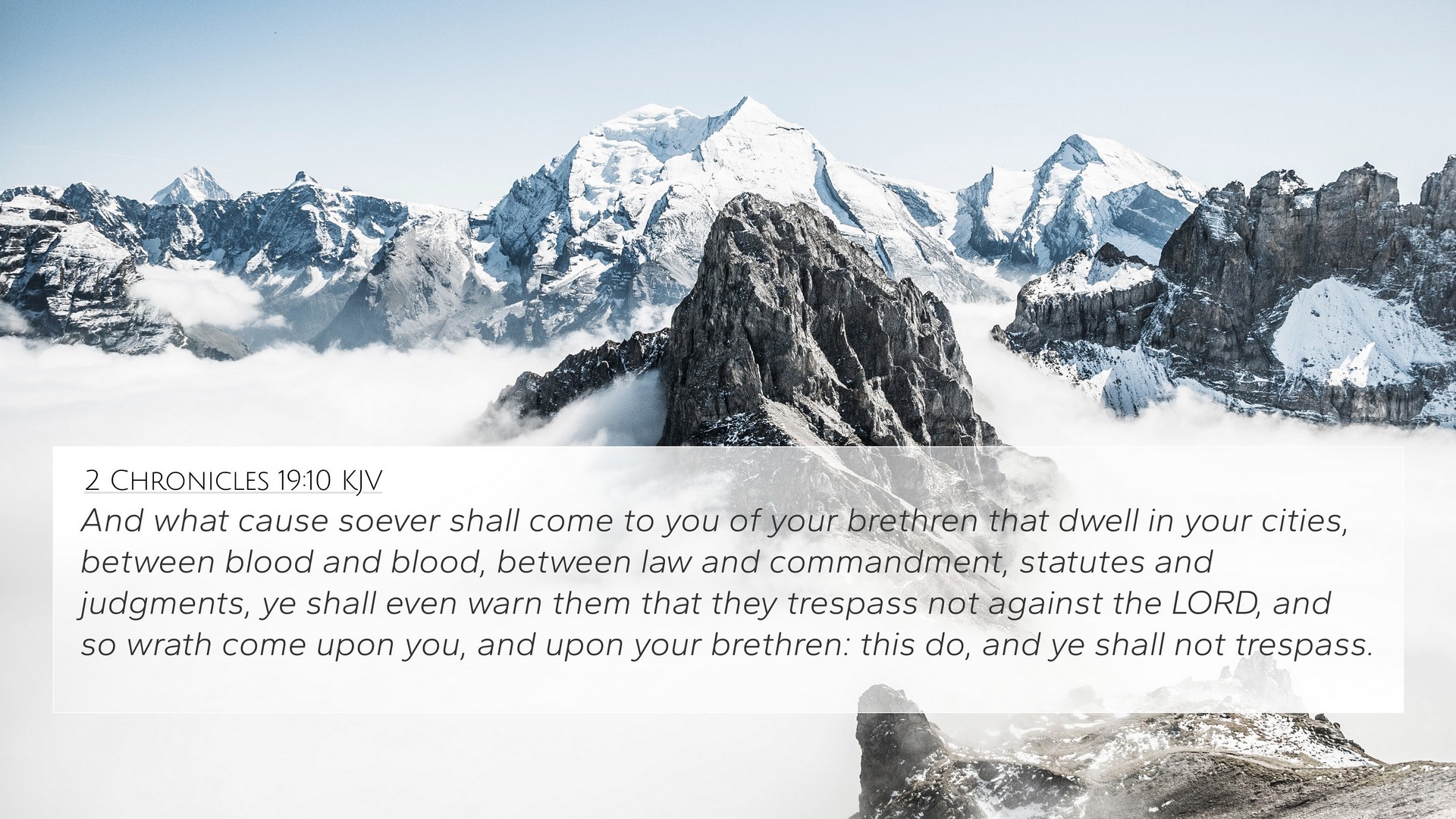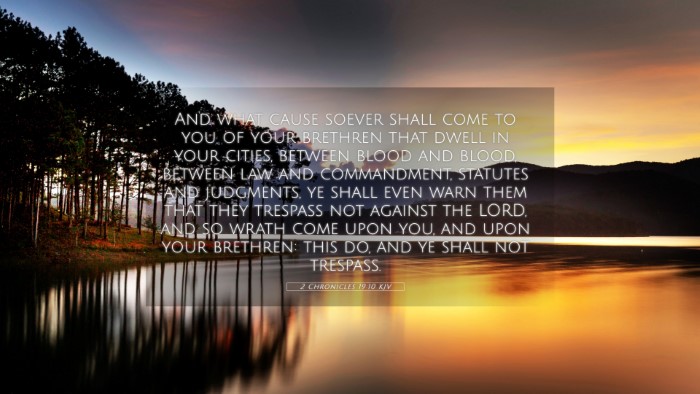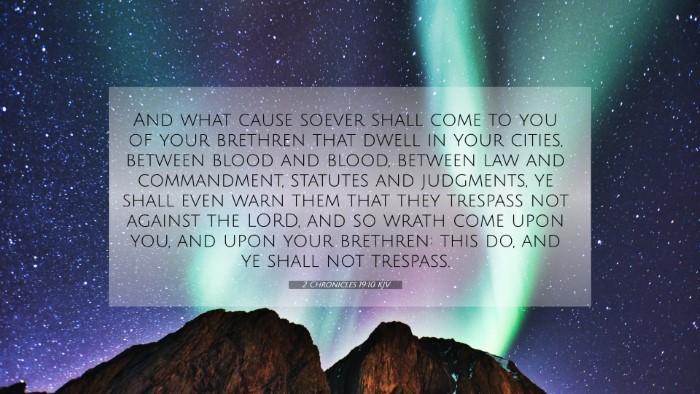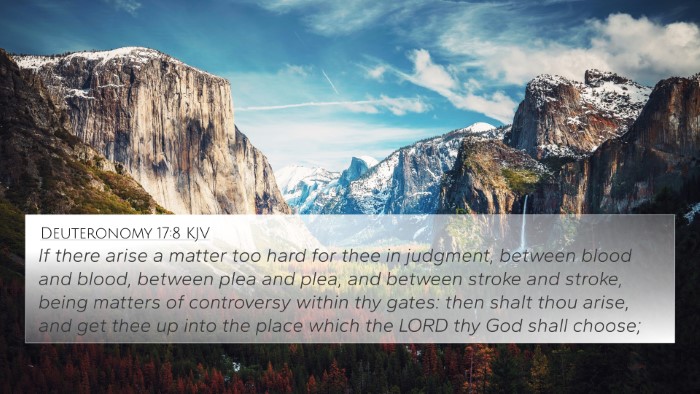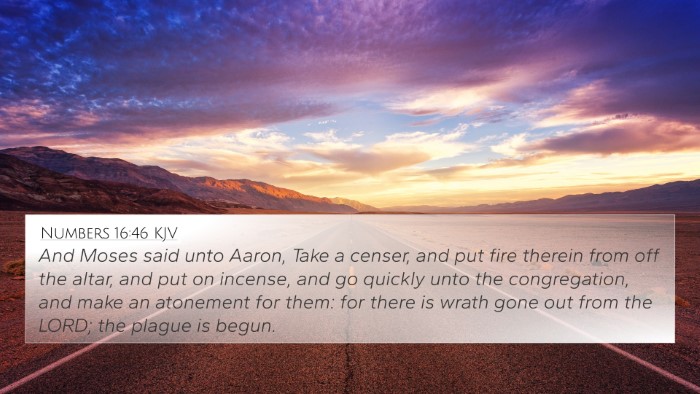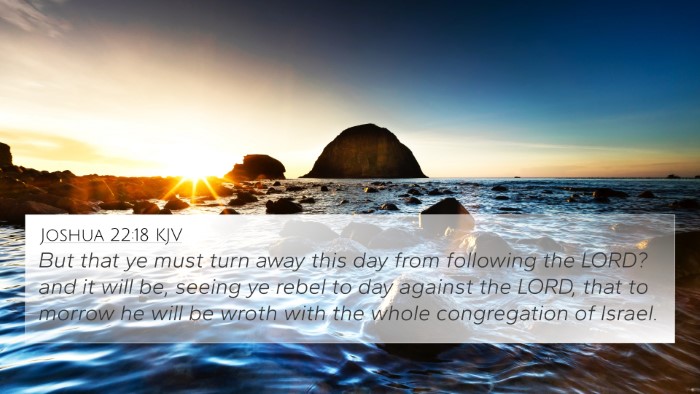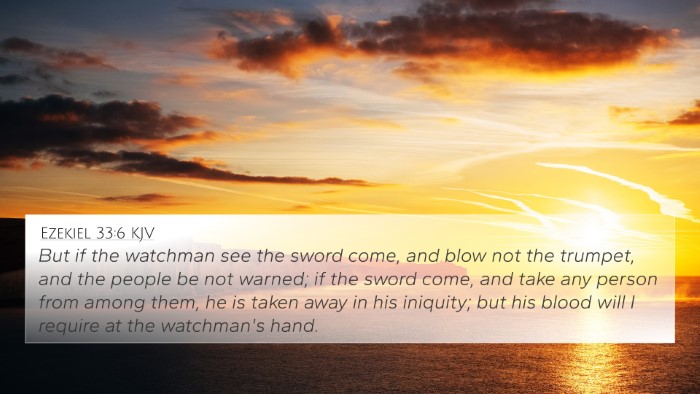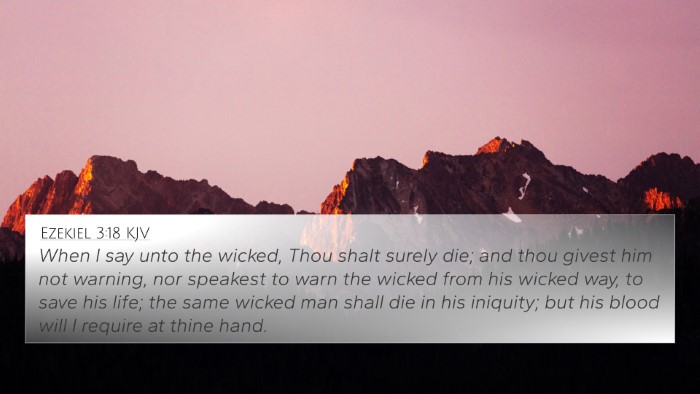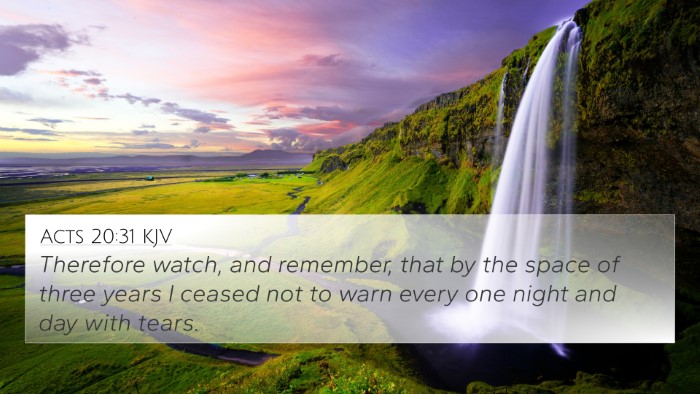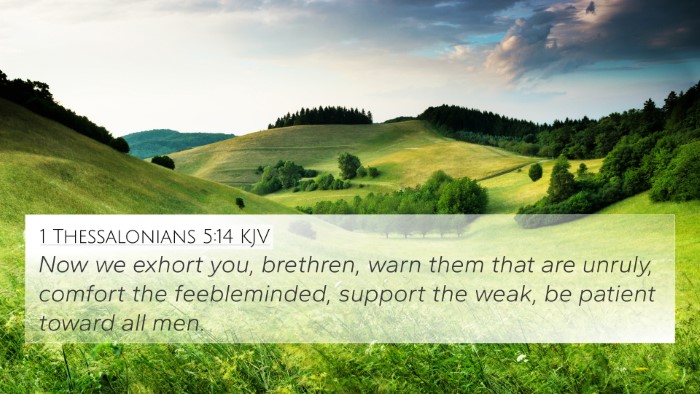Understanding 2 Chronicles 19:10
2 Chronicles 19:10 reads: "And what cause soever shall come to you of your brethren that dwell in their cities, between blood and blood, between law and commandment, statutes and judgments, ye shall even warn them that they trespass not against the Lord, and so wrath come upon you, and upon your brethren: this do, and ye shall not trespass."
This verse emphasizes the importance of justice and righteousness in the judgment process, as well as the responsibility of leaders to guide their communities according to God's laws. In different commentaries, several insights are provided:
- Matthew Henry's Commentary:
Henry points out that this passage reflects the need for judges and leaders to be diligent in offering guidance and judgments that reflect the will of God. He emphasizes that justice should be impartial, addressing issues between individuals fairly, and that leaders must take their responsibility seriously, as failing to do so leads to divine wrath.
- Albert Barnes' Notes:
Barnes discusses how this directive serves as a reminder to those who hold positions of authority that they are accountable not only for their decisions but also for the consequences of ignoring disputes. He highlights the community aspect of justice, indicating that what affects one can affect many.
- Adam Clarke's Commentary:
Clarke elaborates on the technicalities of the disputes mentioned, explaining that they involve not just legal matters but also moral implications. He notes that the calling for diligence in warning others against transgressions is a significant element of communal responsibility.
Key Insights
The verse serves as a foundational text for understanding several key themes in scripture:
- Justice and Fairness: The call to warn against trespassing reflects the broader scriptural mandate for justice and equity. Judges and leaders are to promote righteousness in society.
- Community Responsibility: Each member's actions potentially affect the entire community, as recognized by the shared accountability outlined in this verse.
- Divine Accountability: The reference to God's wrath indicates that failure to uphold these standards has spiritual repercussions.
Bible Verse Cross-References
This verse aligns with several other biblical texts that similarly address themes of justice, integrity, and community responsibility:
- Leviticus 19:15 - "Ye shall do no unrighteousness in judgment: thou shalt not respect the person of the poor, nor honor the person of the mighty: but in righteousness shalt thou judge thy neighbor."
- Deuteronomy 16:18-20 - "Judges and officers shalt thou make thee in all thy gates, which the Lord thy God giveth thee, throughout thy tribes: and they shall judge the people with just judgment."
- Proverbs 21:15 - "It is joy to the just to do judgment: but destruction shall be to the workers of iniquity."
- Isaiah 1:17 - "Learn to do well; seek judgment, relieve the oppressed, judge the fatherless, plead for the widow."
- Romans 13:4 - "For he is the minister of God to thee for good. But if thou do that which is evil, be afraid; for he beareth not the sword in vain: for he is the minister of God, a revenger to execute wrath upon him that doeth evil."
- Ezekiel 18:30 - "Therefore I will judge you, O house of Israel, every one according to his ways, saith the Lord God. Repent, and turn yourselves from all your offenses; so sin shall not be your ruin."
- James 2:13 - "For he shall have judgment without mercy, that hath shewed no mercy; and mercy rejoiceth against judgment."
Connections Between Bible Verses
When analyzing 2 Chronicles 19:10 through a comparative Bible verse analysis, we see a tapestry of scripture that speaks to God's call for justice. Themes of accountability and righteousness consistently emerge throughout the Scriptures. Using tools for Bible cross-referencing, readers can explore these connections in-depth.
Thematic Bible Verse Connections
By examining this verse, we uncover thematic connections with other crucial texts in the Old and New Testaments. These connections enrich our understanding of God’s emphatic desire for justice and righteousness. Thus, cross-referencing Biblical texts allows believers to recognize patterns and teachings that stand the test of time.
Cross-Referencing Bible Study Methods
Utilizing a Bible concordance, one can explore similar themes or laws mentioned throughout the scripture in relation to 2 Chronicles 19:10. Many modern Bible reference resources and cross-reference Bible study tools provide methodologies for scholars and laypersons alike to grasp the fundamental truths behind scriptural passages.
Conclusion
2 Chronicles 19:10 serves as a crucial reminder of the collective and individual responsibilities Christians have towards righteousness and justice. The inter-Biblical dialogue found within this verse and its cross-references underscores the timeless relevance of God's word in guiding human behavior and community standards.
